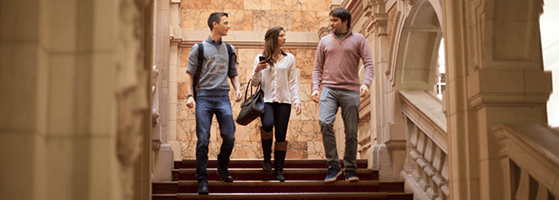20 May 2021
What happens next? Student arrival in higher education in 2021

Author
Dr Harriet Jones
Senior Lecturer, School of Biological Sciences, University of East Anglia
In the second of two connected blogs focused on student transitions, Dr Harriet Jones reflects on student expectations heading into academic year 2021-22 and how students adjust to higher education post arrival. In the first blog, Heather Monsey explains how the University of East Anglia is helping to support incoming students with a free-to-access, pre-arrival skills programme.
This blog was produced as part of QAA Membership’s new student transitions activity. A collection of new and curated resources focused on supporting student transitions into, through and out of higher education will be launched shortly.
Each September I walk into a lecture theatre to a sea of faces looking at me, students nervous and excited at the start of their undergraduate journey. What they are nervous about, and what excites them, is well researched. We know they worry about making new friends; of less concern are the academic demands of their course. Typically, students don’t spend as much time worrying about how they will study during those first few weeks, having little appreciation of how learning will be different from their school experience. Nervousness is more about leaving home, where they will live on campus and who they will be sharing a flat with.
So, this last year because of the pandemic, there was no sea of faces in a lecture theatre. This is where students would first meet their course mates and feel part of a cohort of students. Worry among students over social interactions, or lack of them, must have been acute. Lecturers also felt this deeply. We missed the chance to have that all-important face to face introduction. Getting to know students as individuals, meeting them in person, building up relationships are all precious to the lecturer. The distress caused to students in this pandemic has been well reported, but not so much the distress of the lecturer. Personally, I felt robbed of the job I signed up to.
A matter of confidence
Confidence in students is crucial in adjusting to higher education and coping away from home. The traditional lecture environment is not conducive to learning for students who lack confidence. You would sometimes come away from a lecture feeling like you had had an interactive session but, in reality, a handful of more confident students would be responding to questions. You move this scenario online and a completely different type of session presents itself.
At University of East Anglia (UEA), we have been using an online platform, Blackboard, with its tool Collaborate for online teaching. Within this is a chat function and the opportunity for students to write anonymously on your slides or on a whiteboard. So here is a ready-made function to help students who lack confidence. We found there was much more interaction with an online discussion event than there ever had been in traditional face-to-face teaching.
In the sciences, new undergraduates will certainly have missed out developing practical skills, but we don’t anticipate this will be a problem next academic year. We don’t expect much practical ability simply because most students entering a new environment will inevitably lack confidence. This last year there has been a massive increase in online learning platforms for practical work. This can help build confidence before a practical session because it prepares students for what they might experience. This last year all my students were able to engage with Learning Science online tutorials helping them understand the compound microscope. And because of social distancing, they had a microscope each. So last year’s cohort had more personal experience in microscopy than in any previous year. One of my colleagues got the students to engage with an online fish dissection and then had a fish each for the real thing. Going forward, such benefits must be maintained.
Shifting perspectives
For students, academic concerns kick in as the workload hits them around mid-semester. We know from studies that, as the work builds up and assessments get set, the initial combination of excitement and nervousness turns to worry and concern over what is expected of them. They have settled into their friendship groups, learnt where to shop and do their laundry. So as those concerns diminish, they focus on the academic side of their education. I think this is why it is hard to get many sixth form students to engage with academic pre-university preparation.
I’ve spent the last 10 years building UEA’s Pre-University Skills Programme, working with hundreds of sixth form staff and thousands of sixth form pupils. But we need to reach so many more, and with the pandemic, such activities are getting left behind in many schools. Without the preparation this programme provides, the academic rigour of higher education is not on the students’ radar until several weeks into the first term and it can hit them like a collision with a fast-moving train. They then have to try and catch up on several weeks of work, while trying to figure out what we were telling them about how to do a particular assessment. The language we use can be unfamiliar, as well as the online platforms for information and submission. So many students, when asked to give advice to incoming first years say: ‘start working earlier’. And the new intake will say exactly the same when asked at the end of their first year.
Starting higher education in 2021
But will students have benefitted from studying in the pandemic? It is expected that there will be a wide range of experiences and skill sets. Students who have embraced independent study and have learnt to drive their own learning could flourish at university. Others will have struggled to find a place to study and the motivation to engage with online lessons. Leaving the security of their familiar environment could be more traumatic than previously, and universities are busy putting plans in place to support students. Creating a successful transition to university is all about universities understanding the pre-university learning environment and students being prepared for the move to higher learning. This will be more important this year than it ever has been before.
